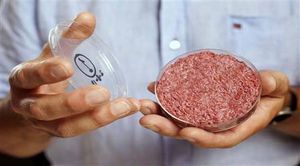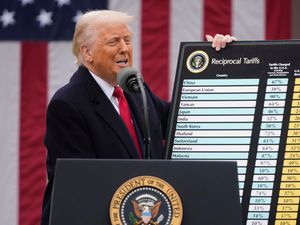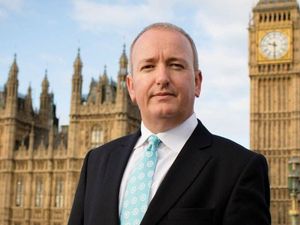Will man-made meat give us food for thought?
It is a dilemma faced by millions of people every day. On the one hand, there is nothing you love more than a joint of pork, roast slowly for several hours, served up with fresh vegetables, roast potatoes, and a dash of apple sauce.

On the other hand, you are an animal lover, you have watched Babe so many times that you can remember the script off by heart, and you feel a nagging sense of guilt every time you tuck into your Sunday dinner.
There may have been the odd occasion when pangs of conscience have driven you to try veggie burgers or quorn sausage, but let's be honest, they just don't taste the same do they?
Well, the answer to that dilemma could be sooner than we think. Prof Ralph Early, a leading food industry expert at Harper Adams University near Newport, says work is at an advanced stage which could soon see meat produced in a lab reaching the supermarket shelves.
We're not talking about vegetable-based substitutes, attempting to replicate the flavour and texture of meat – such as the 'bleeding veggie burger' launched by the Marston's pub chain earlier this month. This is real meat, made up of animal muscle, indistinguishable from what you can get from the butcher's today. But it can be produced without a single animal losing its life.
Sounds too good to be true? Well it is happening now. Cultured meat, or 'clean meat' as it is commonly known, is produced by taking muscle cells from animals, and encouraging them to reproduce in a nutrient-rich bioreactor.
"It can produce a material that looks like meat, tastes like meat, and has the eating qualities of meat," says Prof Early.
"It is not meat in strictly ontological terms as it has not been derived from an animal that has been reared, killed and butchered for the benefit of human consumption. In essence, it is a zoologically derived meat analogue."
Ontological terms or not, it is hard not to see the appeal of being able to manufacture meat on demand in a lab, without the need to breed, nurture, and then slaughter animals. It will also, of course, remove the requirement to manage acres of farmland, and to feed great herds of cattle.
So far, the big obstacle has been reproducing the structure of natural meat. While it is possible to create mince for burgers, nobody has yet been able to create an authentic steak.
Tory MP Daniel Hannan who is a big supporter of laboratory meat, believes this is only a matter of time.
"Five years ago, a burger made from lab-produced meat cost £200,000, today it has fallen to £8," he says.
Hannan believes cultured meat could not only help solve the world food shortage, but could bring huge environmental benefits too.
He points to a paper by the Adam Smith Institute, which estimated that 85 per cent of Britain's land was associated with animal products. A shift from animal farming to cultured meat would mean a 99 per cent reduction in the surface area required.
"Think of what we could all do with that space," he says. "Some would be kept as it is now, because of its beauty, much might be rewilded and reforested, and there would be plenty of room left over to solve our housing crisis definitively, easing the restrictions that cramp and impoverish us."
But while there is a certain logic to this argument, this is likely to pose as many questions as it answers. How would the people of Shropshire react to see fields of cattle and sheep replaced by new housing development?
There is a long established argument that meat is one of the biggest causes of global warming, being responsible for 15 per cent of all greenhouse gases – a figure that is rising as meat becomes more common in poorer countries. A study published in the Environmental Sciences and Technology Journal estimates that a move from livestock farming to man-made meat could cut agricultural greenhouse gases by between 78 and 96 per cent.
There is, of course a downside to all this, not least for the Shropshire farming industry.
Richard Yates, a Bridgnorth farmer who is chairman of the NFU West Midlands livestock board, admits to some concerns about the threat to his industry.
"As a meat producer I would naturally concerned of any competition, but I would stand 100 per cent behind our wholesome, traceable produce," he says.
"The customer is king, of course, but our country is 60 per cent self sufficient in food, and I believe there is always demand for home-grown produce."
James Evans, who runs an organic cattle farm at Linley, near Bishop's Castle, doubts whether it will ever catch on.
"I will never say never, but I can't see it," he says.
"I understand that this product has to be made from animal cells in the first place.
"I think there will be a market for it, but I can't see it catching on, the cost of production is huge.
"I think the world has moved on, and today people who eat meat want meat that has been ethically produced in the open air, that has been grass fed."
Mr Evans says it is easy to be seduced by arguments about 'ethical production', but says that taking farm animals out of the food chain could have real implications for the food chain.
"The countryside is made up of many complex microsystems, and many of these are managed by farmers grazing animals," he says.
"If you don't have that, you will lose many of the environmental benefits that brings.
"People have to be careful what they wish for."




